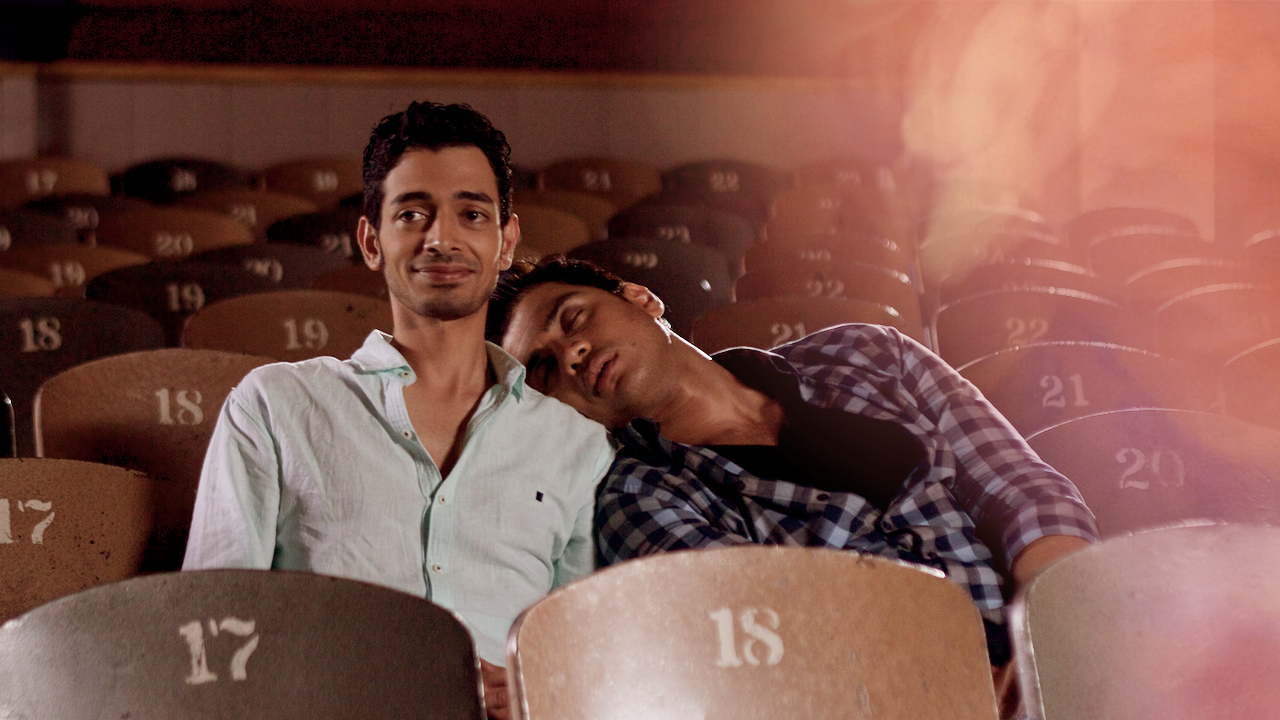
"QUIET ON SET!"
Someone usually yells that out before we shoot a take. Everybody takes their place, technicians gather around a monitor inspecting the details and filming begins.
Now imagine moving that shoot to a street, where you don't actually have the permission to shoot. Then put that shoot on an expensive BMW car you don't own and can't afford to damage, on a road you don't have permission to shoot on, with equipment that costs ten times more than the net worth of your whole life. There's no "Quiet on Set" because it's not a set, and because you can't afford to designate one person to do that job. Our crew was tiny and a lot of things just had to be done away with.
No director wants to shoot a film this way, but I knew this was the only way for us to make this film.
Titled LOEV (and pronounced "love"), the film is about three men, friends, trying to understand and negotiate the boundaries between friendship and love. It's a small, fragile, honest film that tries to capture the silences and the things unsaid in male friendships, and it tries to give you a real look into what upper class Mumbai is really like.
It's honest and confessional, and I only had the courage to write it because I didn't think it would even get made. The idea that local actors with Bollywood aspirations would play a gay part in a first time director's film or the idea that local investors and producers would want to be part of a film that is sure to get censored or banned in its home country isn't realistic. Just to put Indian censorship in context, James Bond wasn't allowed to kiss Monica Bellucci in the last Bond flick.
But Mumbai surprised me, and I soon found myself on this crazy, crowded market street, in a very religious and conservative city, shooting a romantic date between two men. It's not like there is a law that prohibited us from shooting the story, but we had such a low budget and so few shooting days that we just couldn't afford a disruption of any sort. We couldn't afford to deal with corporate PR and go through clearances that rested on the moral judgment of officers. The end result: We never used the word "gay" to describe the film. It was a film about friendship.
The first time the two characters kissed, the moment was twice as electric because half the crew had no idea it would happen. A gasp went around the "set" and my costume designer hurried over -- "Did you not tell them?!" No. I actually hadn't. I meant to, but given the other one million problems I was busy solving on a no-budget film, I never got around to doing it. "What do we do?" he asked me. Shoot another take. Five minutes later, it was business as usual for these conservative, religious men who probably would have recoiled if I had pitched it to them in my first meeting.
Once they became part of the core team, I would give everyone a bound script. I would explain my vision and intent for the film and everyone understood why this needed to get made. They also understood why I was not able to gather all the resources required. I never whined to my producers or investors for more money than absolutely necessary because I couldn't see a clear path to recovery either. A lot of the team invested their salaries into production and gave us deep discounts.
And then there was the personal journey. Telling folks I was making this film felt like coming out of the closet in a way and I didn't see the point in doing it until I was certain the film would actually get done. I was so unsure of our ability to finish this film that it wasn't until the world premiere that my family even found out what the subject matter of the film was.
India has always been known for its contrasts and, true to form, it surpassed us and resisted us and bullied us in as many ways as it loved us and supported us and surprised us with kindness. India gave me my first feature, so I'll always be grateful to her, but I'm not done asking yet.
While we're busy promoting and screening the film outside the country, we've never screened it back home. I hope it is released there, finds an audience there and I hope its able to show my unintentionally homophobic uncle and aunt how undiscriminating the heart is when it comes to love. Gay or straight, rich or poor -- the complications of love get us all and when they see two men together, it may look different (much like the spelling of our title) but at its heart, it's just love.
LOEV had its North American premiere at SXSW on March 12. For more information, visit loevfilm.com.